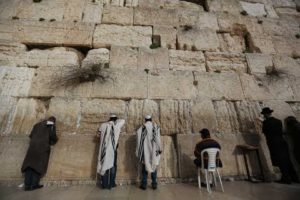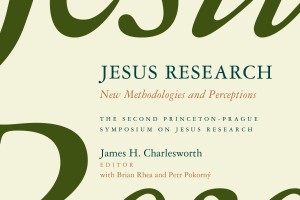How preposterous a thought it is that in the often barren, frigid, and life-drained months of winter that we celebrate the birth of new life of Jesus, the God-Man. The church’s celebration of the resurrection seems to get it right- the rising from death to the glory of new life remembered on Resurrection Sunday seems aptly fit for the greening and budding months of Spring.
Yet, the tapestry of the testaments are here to remind us that often the beauty of life often comes as the Divinely provided answer to the pain and the darkness of barrenness.
The themes of redemption, life, and birth are well established themes that the church seen cohesively threaded consistently through the writings of Scripture. Yet, even beyond themes revealed (or concealed) in the text itself, there is also the thought that God’s consistent patterns for action are revealed in the organization and the structuring of the biblical canon’s themselves.
As the Pentateuch is examined, we see these books primarily focused on the life and ministry of Moses, with Genesis perhaps acting as a foundational “Introduction” to the life of the great prophet, law-giver, and formational sheperd. Moses’ story begins as a precious preserved child in a milieu of murder and death. Yet, although we don’t see any difficulty with Moses’ mother bringing forth children, we see that his ancestral family does. The nation that emerges under Moses is the long awaited realization of the promises foretold and fore-made to Abraham and Sarah. Yet decades after hearing this promise, Sarah continued to remain in the despair and the darkness of barrenness.[1] With the absence of life was the absence of hope. The same was the experience of Rebekah,[2] and Rachel completed the trifecta of this unfruitful trinity.[3] Yet, when life could not be created in the timing and will of man, it was the intervention, and the compassionate power of God that touched and opened these womb’s, that God’s own promises might stand, and the need for his intervention be remembered. Barrenness lead these women to trust only in the Lord, and in their moments, made the hope of a nation realized under Moses seem unattainable.
Likewise, the biographies of Jesus have their own introduction. With John clearly laying the foreground to Jesus’ ministry by going back “in the beginning…”[4] both Matthew and Luke recount the ancestral foreground to Jesus’ incarnation.[5] Also saved from sword or an enemy king, God comes down to us after we learn of God’s provision of life to the womb of his ancestor, Elizabeth.[6] Looking out from under the shadow of Rome, and looking into her own empty home, the hope for future of vibrant life seemed bleak for both Elizabeth’s people, and for her own family.
Yet God so likewise chose to bring life to where there was none, to bring hope and a beginning where there seemed to be nothing but “ends.” When it was clear that “only God can,” he brought life to prepare the way for the True Prophet, the True Law-Giver, and the True First-Fruit and Shepherd of God’s people, JESUS.
It is from the lowest pits of agony and helplessness that the need for God’s intervention is most understood and yearned for. And once God has allowed barrenness to reveal our tremendous need, he then provides the fullest manifestation of Himself. He became Man. And becoming like us, He makes it possible for us to become like Him.
This past year, I personally have had no less than three friends experience perhaps the most grueling form of barrenness- the miscarriage or premature birth and passing of their child. Perhaps the short days and long chilled nights of winter remind us of our own losses and season’s of emptiness brought about within this past year. Yet, in this season of Advent, and this exercise of anticipation, may we remember that God breaks through barrenness, and that “nothing will be impossible with God”.[7] And as we anticipated Jesus return, may we also remember that season’s of barrenness today, mean only that there is a bright out-breaking of God’s power and life still on the horizon, rising.
[1] Gen 18
[2] Gen 25:21
[3] Gen 30:22-23
[4] John 1:1
[5] Matt 1:1-17; Luke 2:23-38
[6] Luke 1:7,
[7] Luke 1:37





Leave a Reply
Your email is safe with us.